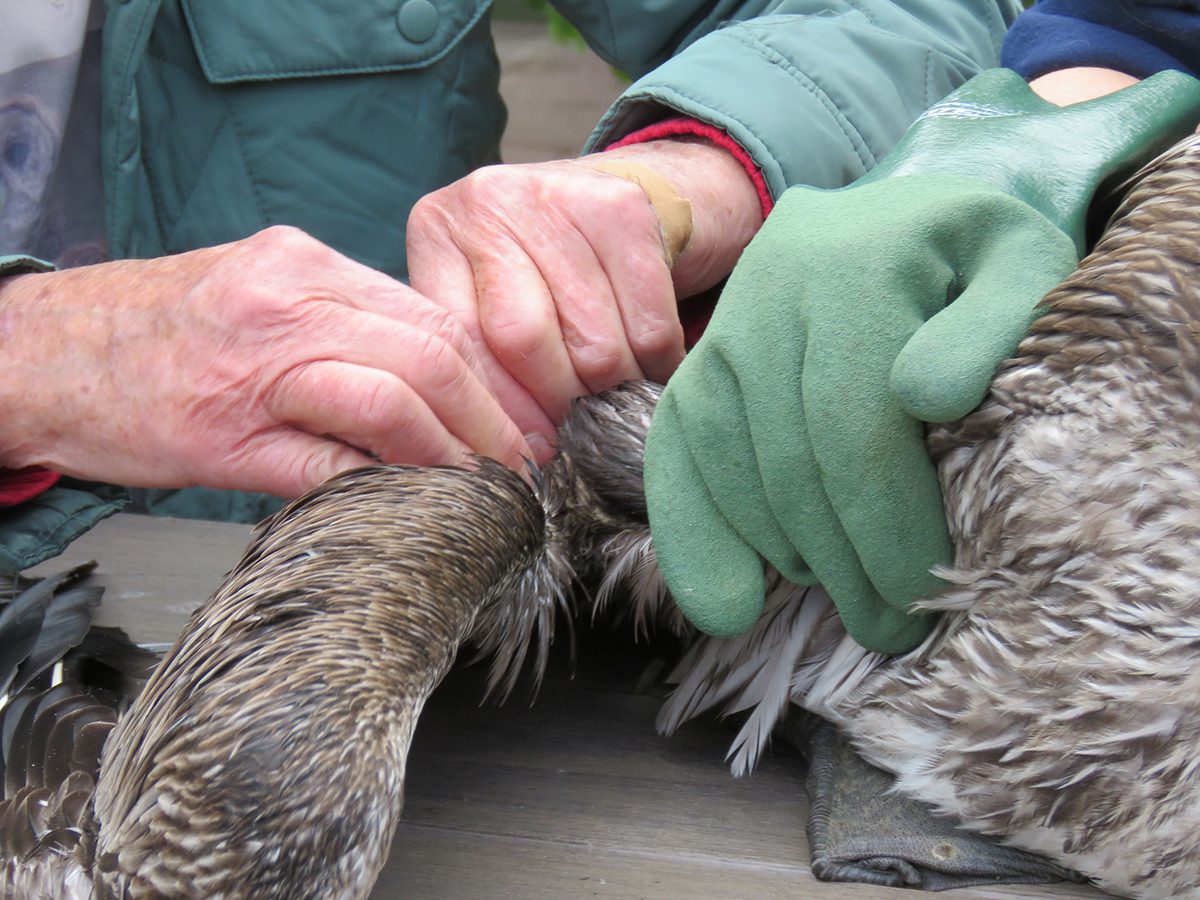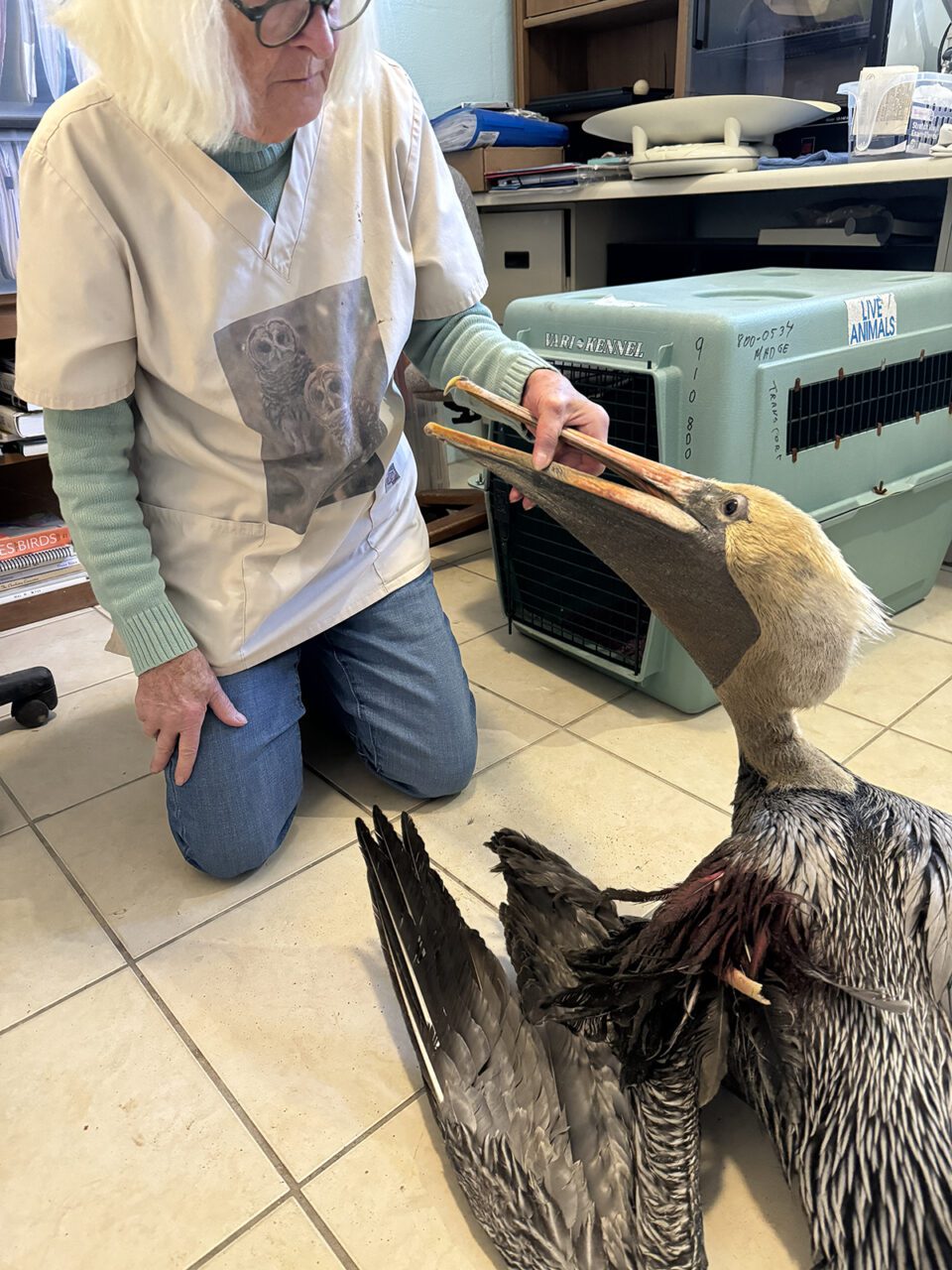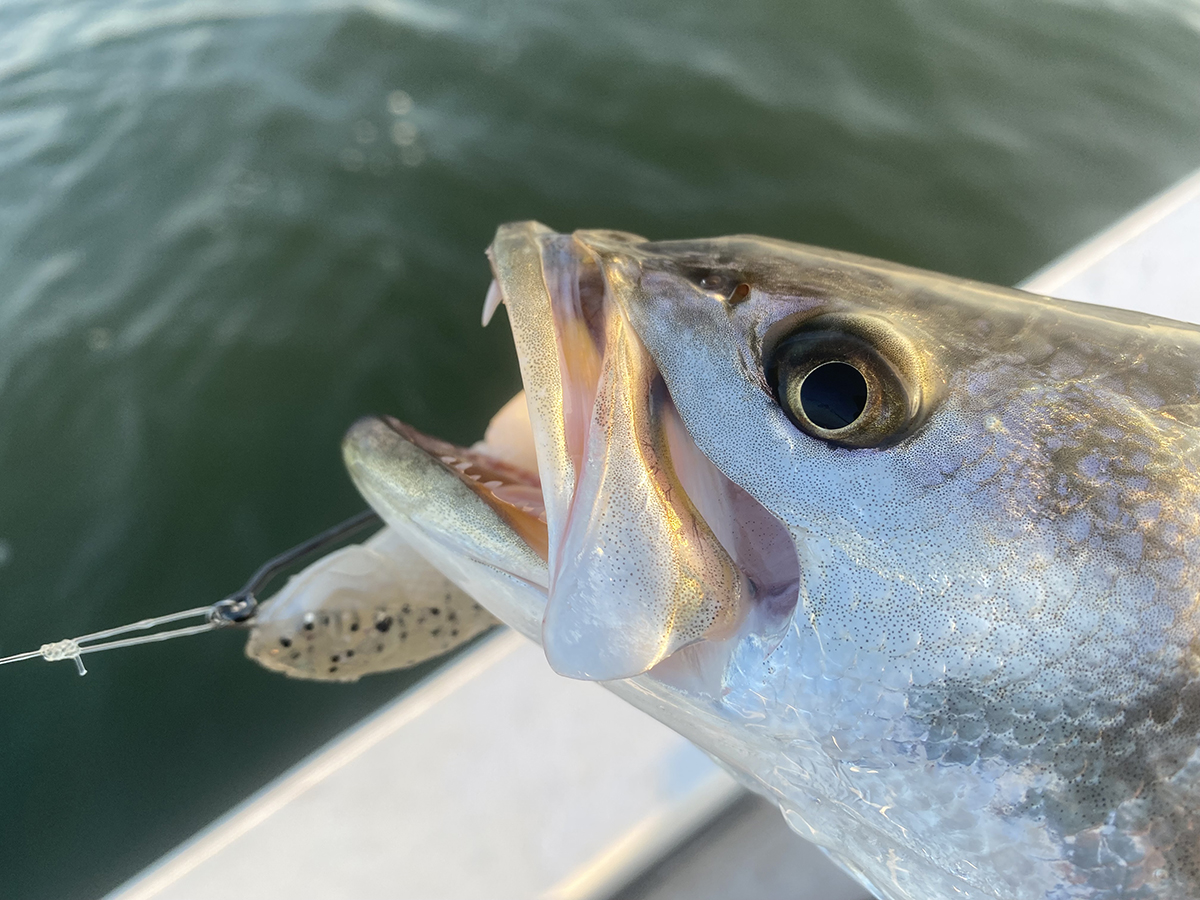
A wild bird rescue organization in Brunswick County is offering a reward for information leading to the culprits who’ve been mangling brown pelicans.
The $10,000 reward, a first in Sea Biscuit Wildlife Shelter’s nearly 20-year history, signifies a breaking point for shelter founder and Oak Island resident Mary Ellen Rogers.
Supporter Spotlight
“What I want to do is make them stop,” she said.
No one has been able to pinpoint exactly who “them” is behind what has become a common winter occurrence of dead and severely injured brown pelicans washing ashore on North Carolina’s predominately southernly beaches.
Over the course of a decade, a noticeable number of dead and injured pelicans have been found on shores from Emerald Isle to Topsail Island and down to Brunswick County beaches.
“We get them every year and it’s very depressing,” Rogers said.
The uptick is usually within the same two-month timeframe of each year, January through February, when trawling is closed off other states’ coasts, but remains open off of North Carolina’s beaches. This gives out-of-state commercial fishers two extra months of work they would not have otherwise working off their state shores.
Supporter Spotlight
Pelicans are attracted to catch being scooped up in nets from commercial fishing boat trawlers.
Rogers said you can see a “cloud” of these birds gliding overhead of a trawler earning a day’s catch. The problem comes in when a pelican wants in on the catch being hoisted from the sea because this is when it likely becomes caught in the net.
A fisherman, or several for that matter, might use a tool to puncture a hole in the birds’ wing or grab it by the end of its wing, swing it in a circular pattern until the wing breaks, then toss it overboard.
The latter is indicative of an overwhelming majority of injuries dozens of brown pelicans suffered last year, when 60 washed up dead on the shores of the island Rogers calls home.
All but two of the 15 pelicans she sheltered last year had the same injuries to their left wings, just above the elbow.

Rogers describes the visibly graphic injuries as torsion fractures, which occurs when a bone is broken by a twisting motion that leaves it looking like a corkscrew.
A Florida-based wildlife pathologist confirmed one of the critically injured pelicans that washed ashore in Oak Island last year suffered such a fracture, Rogers said.
Though an adult pelican can have a wing span of more than 6 feet, they typically weigh no more than 8 pounds because their bones are hollow, which means, when broken, the bone cannot be pinned.
In other words, there’s no fix to this type of injury in a pelican. So, injured birds that wash ashore alive have to be euthanized.
“We have to do something,” Rogers said. “I can’t just keep complaining about it every year. I just want the injuries to stop.”
She told Coastal Review Monday in a telephone interview that only one dead pelican has been found on Oak Island’s beach since Jan. 1. But she suspects she’ll be getting more calls of reports of dead and injured pelicans as February temperatures steadily hold at those warmer from the previous month.
Rogers hopes the pot of money filled by private donors will entice someone to come forward with evidence needed to nab those responsible for the injuries.
The reward is advertised on posters Rogers tacked up at Oak Island marinas on Oak Island and in Holden Beach fish stores, places where out-of-state commercial fishers might stop to gas up and pick up odds and ends.
The signs were posted in mid-December, shortly after Rogers organized a meeting with local law enforcement, wildlife officials and representatives with the U.S. Coast Guard to discuss the ongoing problem.
Pelicans are a migratory species that fly south in winter and return in late February to nesting areas in North Carolina, including on small islands in the Cape Fear River, and Pamlico and Bogue sounds. They can also be found in the state throughout the year.
Pelicans are protected under the federal Migratory Bird Treaty Act of 1918, which prohibits people from injuring, killing, possessing or harassing these birds without a permit, Miranda Turner, a wildlife health biologist with the N.C. Wildlife Resources Commission’s Game and Furbearer Program, said in an email.
“Penalties for breaking the (act) can vary widely depending on whether the person knew that what they were doing was illegal, how many birds were taken, and more,” she wrote.
Those include misdemeanor charges, fines up to several thousand dollars, and prison.
The reward Sea Biscuit Wildlife Shelter has posted will remain in effect through March 1.
Anyone with information leading to the arrest and conviction of those intentionally harming pelicans in the waters off Brunswick County may report so by visiting NC Wild TIP (Turn In Poachers). Witnesses may dial 911 as a secondary reporting measure.







